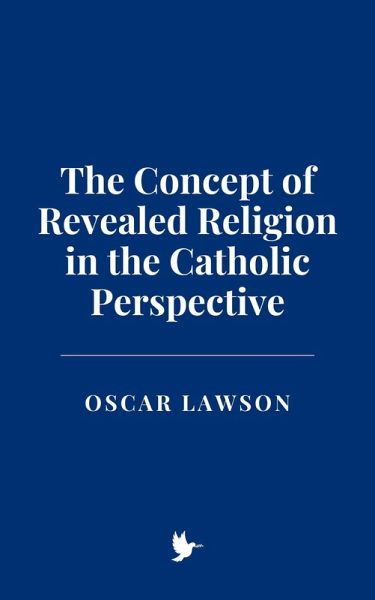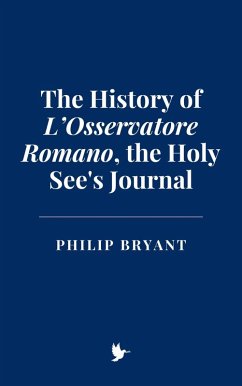
The Concept of Revealed Religion in the Catholic Perspective (eBook, ePUB)

PAYBACK Punkte
0 °P sammeln!
The concept of revealed religion occupies a central position in Catholic theology, presenting itself as the foundation upon which the Church builds its teachings, practices, and worldview. Revelation, in the Catholic perspective, is not merely the communication of facts about God, but the unveiling of God's very self, inviting humanity into a relationship grounded in divine truth. This understanding of revelation has been shaped by historical events, theological reflections, and pivotal figures, each contributing to the articulation of what it means to know God through His self-disclosure.The ...
The concept of revealed religion occupies a central position in Catholic theology, presenting itself as the foundation upon which the Church builds its teachings, practices, and worldview. Revelation, in the Catholic perspective, is not merely the communication of facts about God, but the unveiling of God's very self, inviting humanity into a relationship grounded in divine truth. This understanding of revelation has been shaped by historical events, theological reflections, and pivotal figures, each contributing to the articulation of what it means to know God through His self-disclosure.
The roots of the concept of revelation trace back to biblical narratives where God's actions in history reveal His covenantal love for humanity. The Catholic Church holds that this process of revelation reached its apex in the person of Jesus Christ, the Word made flesh, as articulated in the Gospel of John: "And the Word became flesh and dwelt among us, full of grace and truth" (John 1:14). The early Christian communities understood Christ not only as a teacher or prophet but as the embodiment of divine revelation itself. This conviction would become the bedrock of Christian theology, reinforced by the writings of early Church Fathers such as St. Irenaeus of Lyons, who argued against Gnostic claims by emphasizing the historical reality of Christ's incarnation as the definitive act of divine self-communication.
The roots of the concept of revelation trace back to biblical narratives where God's actions in history reveal His covenantal love for humanity. The Catholic Church holds that this process of revelation reached its apex in the person of Jesus Christ, the Word made flesh, as articulated in the Gospel of John: "And the Word became flesh and dwelt among us, full of grace and truth" (John 1:14). The early Christian communities understood Christ not only as a teacher or prophet but as the embodiment of divine revelation itself. This conviction would become the bedrock of Christian theology, reinforced by the writings of early Church Fathers such as St. Irenaeus of Lyons, who argued against Gnostic claims by emphasizing the historical reality of Christ's incarnation as the definitive act of divine self-communication.
Dieser Download kann aus rechtlichen Gründen nur mit Rechnungsadresse in A, B, CY, CZ, D, DK, EW, E, FIN, F, GR, H, IRL, I, LT, L, LR, M, NL, PL, P, R, S, SLO, SK ausgeliefert werden.













